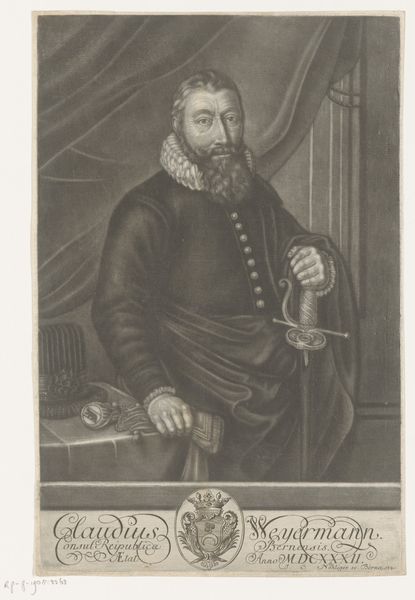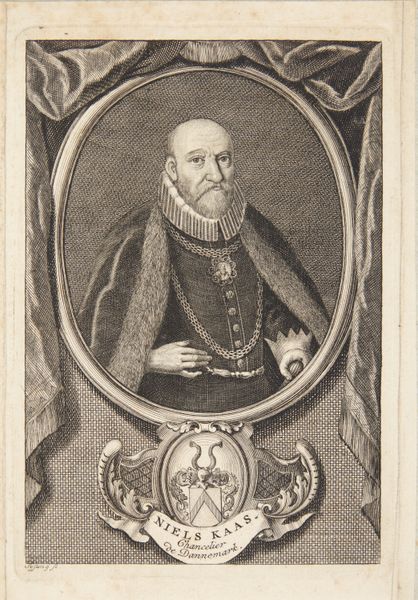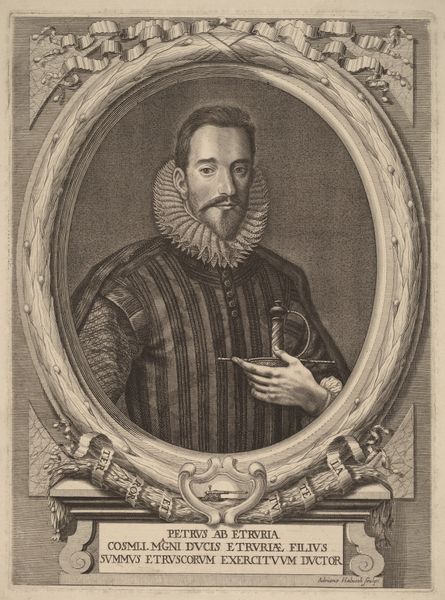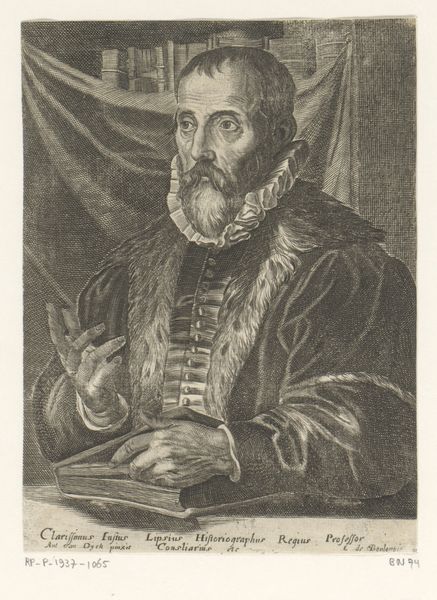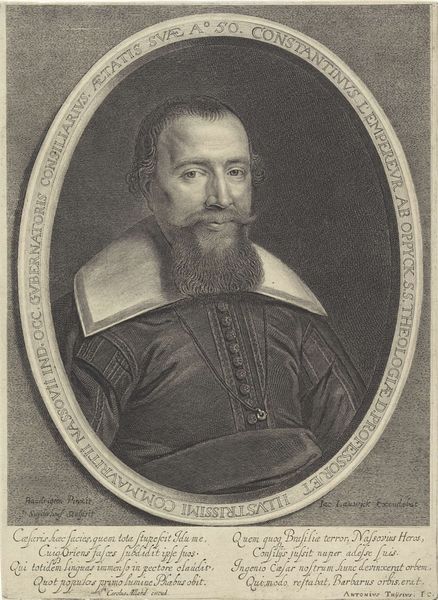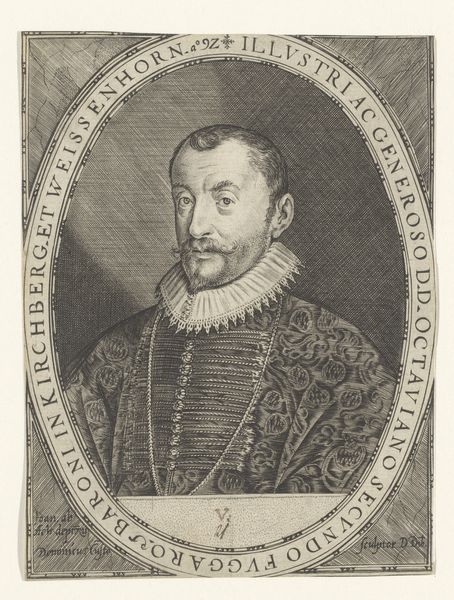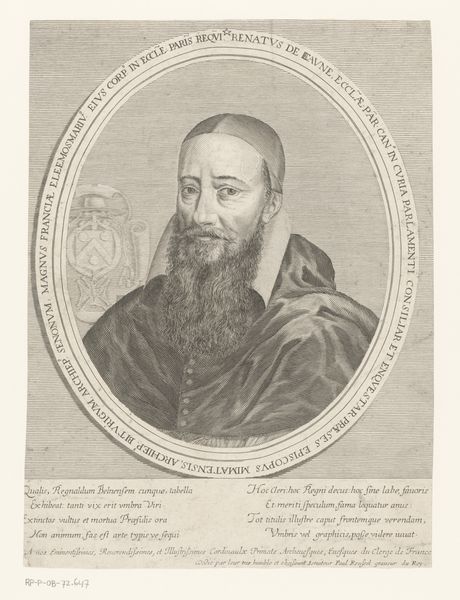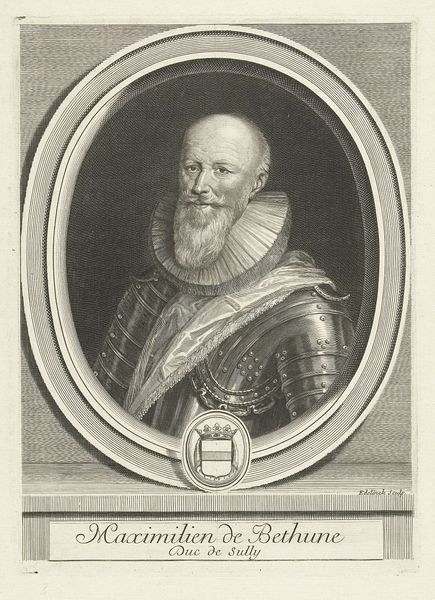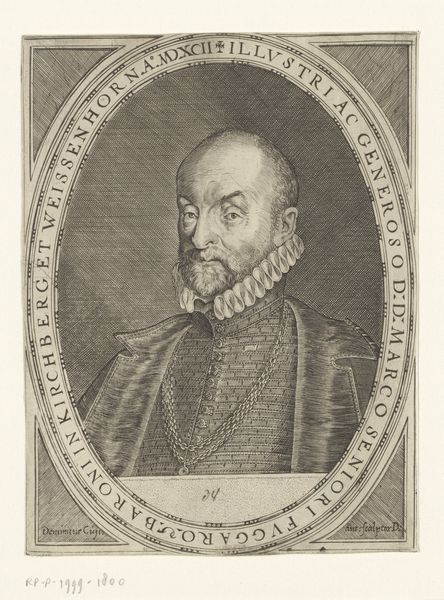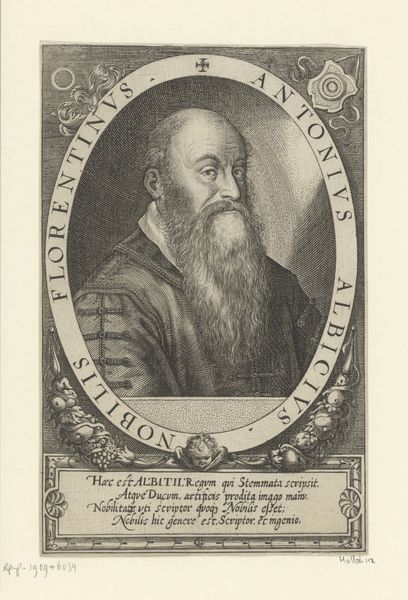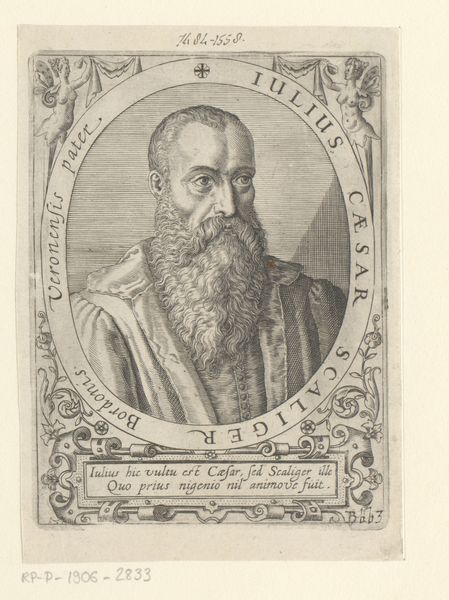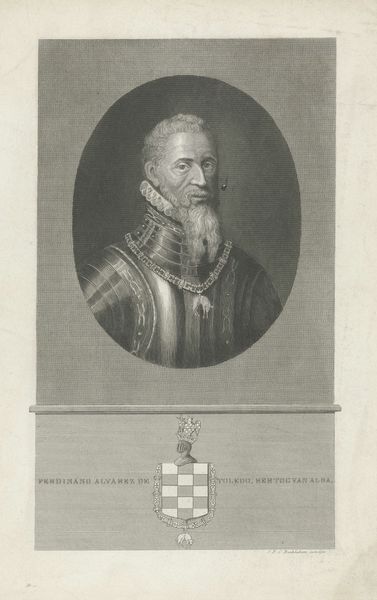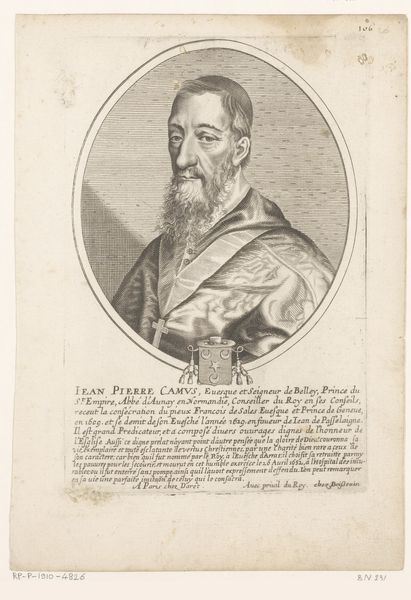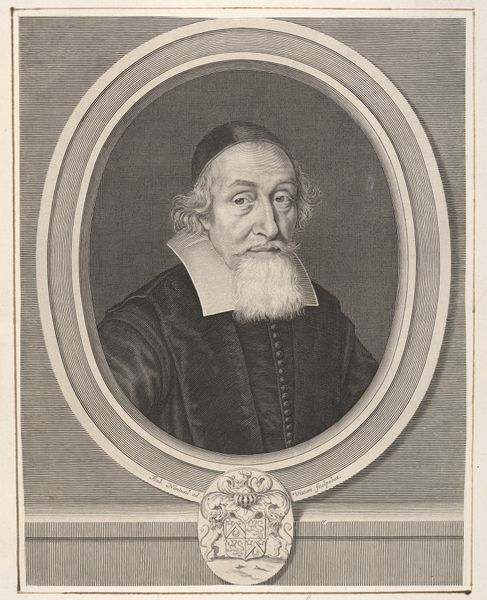
drawing, print
#
portrait
#
pencil drawn
#
drawing
#
toned paper
#
light pencil work
# print
#
pencil sketch
#
old engraving style
#
portrait reference
#
cross
#
pencil drawing
#
limited contrast and shading
#
men
#
portrait drawing
#
pencil work
Dimensions: sheet: 12 3/16 x 10 1/8 in. (31 x 25.7 cm) image: 11 9/16 x 9 1/4 in. (29.3 x 23.5 cm)
Copyright: Public Domain
Editor: So this is "Jean-Pierre Camus, eveque de Belley," made sometime between 1605 and 1650, currently at the Met. It’s a print, so lines are the medium... It feels very formal and distant, typical of portraiture of the era. What do you make of it? Curator: Beyond the conventions of formal portraiture, let’s consider the social role Camus held as Bishop of Belley. Portraits of religious figures at this time often served to reinforce power structures. How might this image function as a representation of authority and faith in the context of religious and political upheaval? Editor: Well, his gaze is direct, and that huge cross…it's definitely a symbol of power. But what about the frame around the portrait itself? The inscription, is it celebrating or maybe…constraining him? Curator: That's a sharp observation. The inscription indeed functions on multiple levels. On one hand, it praises his role as "Prince of the Church" but think of it in a social construct. Consider who would be producing and consuming this image. Was it meant to inspire reverence amongst the masses or reinforce his image amongst his peers? Editor: I didn't consider the audience. I suppose that limits a simple celebration/constriction reading of it. Curator: Exactly! What does that say about the relationship between art, power, and social structures during this era? Are artists complicit or subversive or something in between? Editor: It feels like they are a bit of everything, really. Context is so important. I see so much more now; thank you for clarifying that! Curator: And thank you for prompting a crucial discussion about art's function in society. I appreciate you digging deeper into this artwork.
Comments
No comments
Be the first to comment and join the conversation on the ultimate creative platform.
